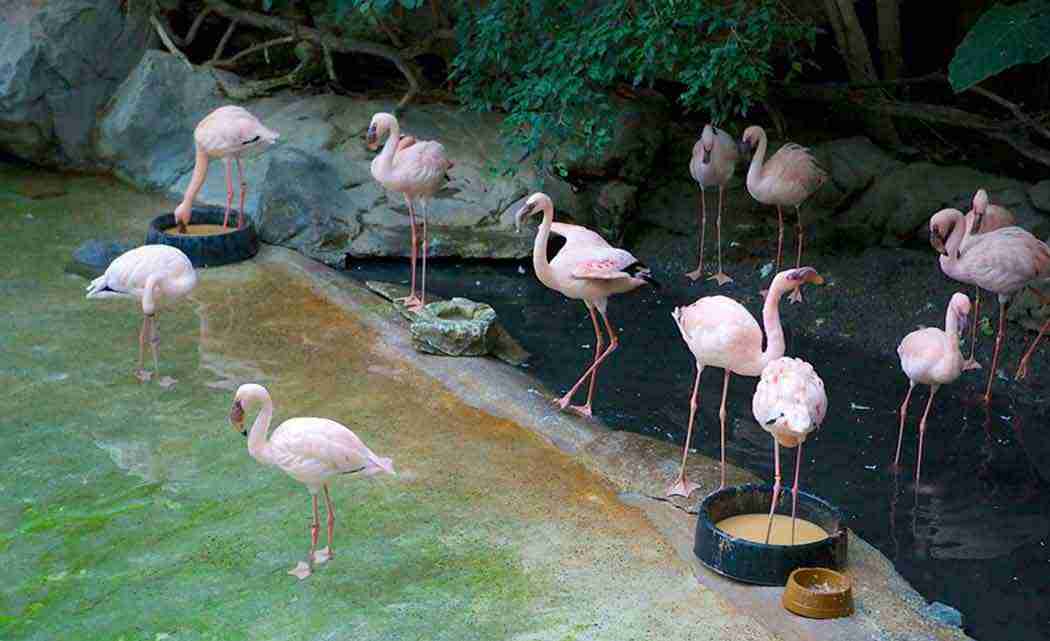ST. PAUL, Minn. (AP) _ Minnesota’s zoos are taking steps to protect their birds from avian influenza.
The Minnesota Zoo in Apple Valley, the Como Zoo and the University of Minnesota’s Raptor Center in St. Paul are watching the spread of the illness carefully, according to Minnesota Public Radio News (http://bit.ly/1Opishe ).
Como Zoo spokesman Matt Reinartz said the same migrating waterfowl suspected of spreading the disease in turkey farms also stop at the zoo in St. Paul.
“The Chilean and Caribbean flamingos that we have here, they’re less susceptible to (avian flu),” Reinartz said. “But our plans are to wait for the heaviest migration to pass before we fill the bird exhibit with water and bring the flamingos out.”
The Como Zoo also has puffins and penguins, but they’re kept inside. The zoo is testing any dead wild birds found on the grounds for avian flu.
At the Minnesota Zoo, the bird show is one of the main attractions.
“We’re very concerned because these birds are trained,” said Kevin Willis, vice president for biological programs at the Minnesota Zoo. “They’re not easily replaced.”
The show is enclosed with netting, but goose or duck droppings can still get in. So bird handlers are taking extra precautions to make sure the birds’ food doesn’t touch the ground.
Wild birds routinely are in the zoo. Turkeys wander the grounds and eat at the zoo’s feeders. Geese land in the animal enclosures.
Willis said zoo personnel are trying to be extra careful to limit the possibility of cross contamination between enclosures. But he said it isn’t practical to seal off the zoo’s birds.
The Raptor Center at the University of Minnesota is focusing on making sure volunteers who keep the place going know what to do.
“We have a lot of people who love to be outdoors, love to go birdwatching,” said Executive Director Julia Ponder, a veterinarian. “And we communicate that we’d like them to change clothes before they come here, and just be really aware of not moving the organic physical material between the two areas.”
On Thursday, Gov. Mark Dayton declared a state of emergency over the H5N2 avian flu pathogen. The outbreak that has cost Minnesota’s turkey farms more than 2.7 million birds and one Minnesota egg farm about 175,000 hens. The U.S. Department of Agriculture on Friday confirmed three new H5N2 infections at Minnesota farms, without giving details.













No Comment